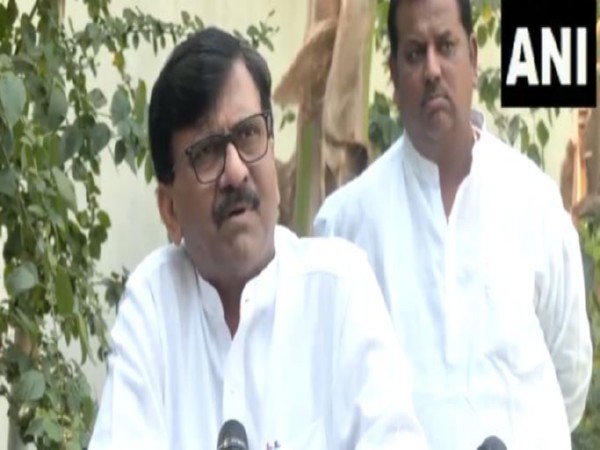Need for a change in Mineral Reporting Standards: Dr VK Saraswat, NITI Aayog
Oct 29, 2020

New Delhi [India], October 29 (ANI/NewsVoir): "The present reporting of mineral resources in India is using UN framework classification in which government, intergovernmental and NGO reporting of mineral resource estimation and forecast with objective as reliable mineral inventory to under print mineral policies available for exploration and mining companies to attract inward investment and exploration activities. We have to see the platform which we adopted has it really improved and brought in the required amount of investment in this particular sector. As the participation of the private sector increases, is the information available to the public good enough to take risks which are involved in doing the mining operations?" Dr VK Saraswat, Member of NITI Aayog said in a webinar on Adopting International Standard for Mineral Reporting organised by Metalogic PMS in partnership with MEAI.
The reliability and accuracy of information data available presently is always questioned as India is losing FDI in this particular sector.
"CRIRSCO is for public reporting whereas UNFC is not acceptable for public reporting. In CRIRSCO we have a mandatory system for classification, whereas in UNFC it is a voluntary system of classification with the choice of 48 categories, no rules are imposed on disclosure of categories of resources. CRIRSCO is about giving public reports to be work undertaken by a competent person in case of UNFC they have left to adopting countries."
"If we can follow this international template of reporting then we can certainly standardize the whole process."
"There is a need for a change and CRIRSCO's proposal is very positive. The Government of India is thinking in that direction, a new framework is going to emerge. Inputs from this webinar organised by Metalogic PMS, are certainly will be very useful and they will be put in use when the final policy papers on this are submitted in front of the government of India,'' Dr VK Saraswat said.
"In India if we want to generate money through stock exchange then SEBI may like to issue an order that anybody who would like to list the company should have a committee of mineral resource international reporting standards. And if we want an open investment of FDI then the government will have to harmonise the various routes to open the window to make a mandate to adopt CRIRSCO," said Dr Aruna Sharma, Former Steel Secretary, who was also present at the webinar.
The CRIRSCO (Committee for Mineral Reserves International Reporting Standards) is an independent, voluntary and not-to-profit organisation established in 1994 by five countries comprising representatives from mining and metallurgical institutions from the United States (SME), Australia (AusIMM), Canada (CIM), the United Kingdom (IMMM) and South Africa (SAIMM). CRIRSCO has since been expanded to 14 countries with India becoming the latest member of CRIRSCO on August 1, 2019.
The Mining Engineers' Association of India, called for a round table conference on December 18, 2014 at Hyderabad with the primary objective of deliberating on how to adopt best international mineral industry practices and attract private investments in mining.
The CRIRSCO recognized the NACRI (National Committee for Reporting Mineral Resources and Mineral Reserves in India) as the National Reporting Organisation (NRO) in India and the Mining Engineers' Association of India (MEAI) as the Professional Organisation (PO). CRIRSCO members are the National Reporting Organisations (NROs) that are responsible for developing mineral reporting codes, standards and guidelines compliant to its Template.
CRIRSCO sets minimum standards and promotes best practices for public reporting of Exploration results, Mineral Resources and Reserves.
All major stock exchanges in the world accept resource disclosure reports prepared by Competent Person and based on the CRIRSCO compliant national reporting standards. Mining and Exploration companies listed on global stock exchanges such as NYSE, LSE, HKSE, TSX, ASX etc. use only CRIRSCO compliant reporting standards and account for more than 80% of the listed capital of the mineral industry.
The 5-year long collective efforts of NACRI-MEAI fructified with the CRIRSCO recognizing NACRI as the NRO, MEAI as the PO and the IMIC (Indian Mineral Industry Code for Reporting Mineral Resources and Reserves in India) as the national reporting standard of India, with effect from August 1, 2019. The IMIC is a Made in India code and internationally recognized standard for reporting Exploration results, Mineral Resources and Reserves in India. On entering into a reciprocity agreement with the 13 other NROs of CRIRSCO, the Competent Persons (CP) from India will gain eligibility to prepare Competent Person's reports for submission to stock exchanges in their respective countries.
NACRI-MEAI is seeking formal recognition of IMIC by the Indian Government; and draws the much-needed Government's support in the implementation of the IMIC by the IBM and mining and exploration companies in India as the national standard for reporting Exploration Results, Mineral Resources and Reserves. The implementation of IMIC will enhance the probabilities of attracting FDI in the Indian resource sector manifold, as envisaged in the Indian National Mineral Policy 2019. The NACRI-MEAI also urged the SEBI to recognize the IMIC as the mandatory standard to prepare Independent Technical Reports (ITR) on Mineral Resources and Reserves and incorporate the ITR as the mandatory disclosure for listing of potential exploration and mining companies on Indian stock exchanges. The IBM may assimilate the IMIC compliant reports directly into the National Mineral Inventory (NMI), which will enhance the reliability of the Indian mineral inventory.
Metalogic PMS has been organising webinars and conferences in this area to flag issues related to mining and exploration in India which needs immediate attention from policymakers to support the industry.
This story is provided by NewsVoir. ANI will not be responsible in any way for the content of this article. (ANI/NewsVoir)




















